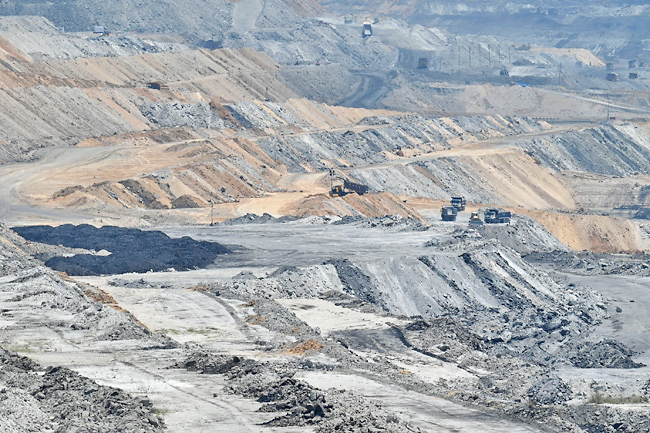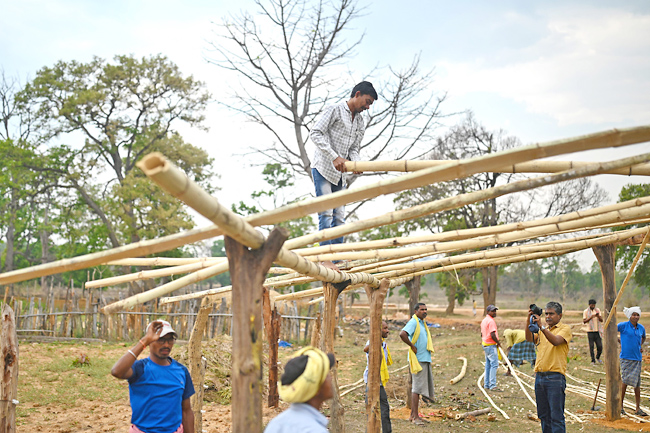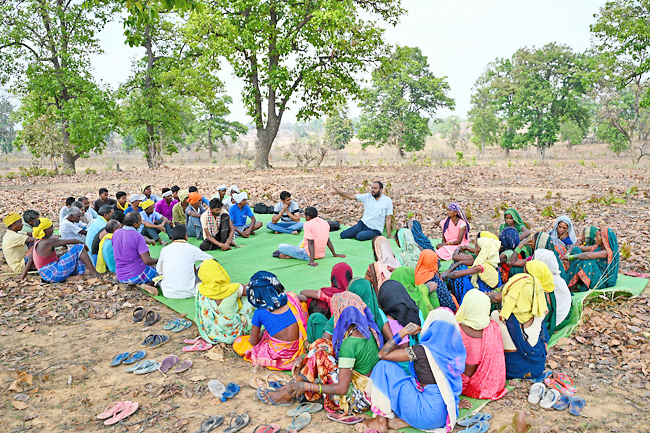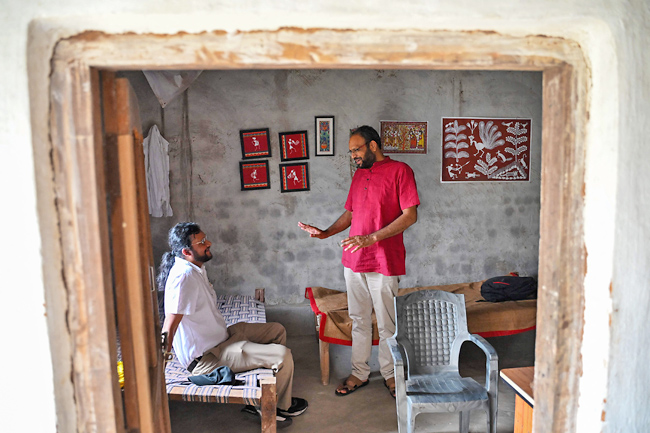KORBA (AFP) – Deep in an Indian forest, activist Alok Shukla greets friendly faces among a small band of protesters sitting in the way of plans to turn the surrounding wilderness into coal mines.
Shukla has led a decade-long grassroots campaign against some of India’s conglomerates – including one operated by Adani Group, helmed by Asia’s second-richest man – seeking to tap one of the country’s richest subterranean stores of fossil fuels.
The movement had a major triumph in 2021 when, bowing to its demands, the government established an elephant reserve in a 445,000-acre swath of the threatened Hasdeo Aranya forest, an area bigger than the size of London.
“It was a great achievement for our struggle,” Shukla told AFP this month from his base in the woodlands of central Chhattisgarh state.
“Our final fight is that no more mines should be opened and not even a single tree should be cut down here now.”
Shukla, 45, was announced on Monday as one of the recipients of this year’s Goldman Prize, awarded to campaigners for “sustained and significant” efforts to protect the environment. Through a combination of protest marches, pressure on lawmakers and court cases, Shukla rallied support from thousands living in the forest’s isolated tribal communities to battle the mining giants.





Seventeen proposed mining sites were closed off from development as a result of the elephant reserve’s establishment but large stretches of the forest remain earmarked for coal projects.
Another six proposed mining sites were left out of the reserve, Shukla said, five of which remain dormant while another – belonging to the Rajasthan state government but run by Adani Group – is already operational and planning an expansion.
Shukla and the Hasdeo forest’s inhabitants have maintained a sit-in protest for the past two years at the village of Hariharpur, set to be swallowed up if the expansion proceeds.
The campaign “isn’t just a struggle to save the forests or environment but an effort to question the prevalent view around economic development”, Shukla said. India is the world’s third-biggest emitter of greenhouse gases but has committed to achieve a net zero emissions economy by 2070 – two decades after most of the industrialised West.
For now, it is overwhelmingly reliant on coal for power generation.
Prime Minister Narendra Modi’s government said the fossil fuel remains central to meeting India’s rising energy needs and lifting millions out of poverty.
When Shukla first arrived in the Hasdeo forest in 2012, its inhabitants had come to accept the mining projects as inevitable.
“No one wanted to give up their land but they were all resigned to the idea that they couldn’t do anything,” he said.
Shukla went from village to village explaining the legal recourses and constitutional protections for tribal communities that could be used to stop the mines.
He and his allies said they had resisted bribes, violent threats and warnings of legal action in the course of their fight.
“It took a long time, it was tough, but people gradually organised and joined the effort,” 47-year-old Shakuntala Ekka, one of the first few to join his cause, told AFP.






